What are you looking for at Aqrani library?
-
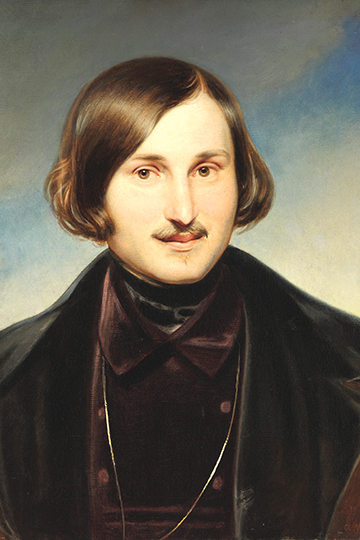
Nikolai Gogol
Nikolai Vasilievich Gogol 1 April (O.S. 20 March) 1809 – 4 March (O.S. 21 February) 1852 was a Russian novelist, short story writer and playwright of Ukrainian origin. Although Gogol was considered by his contemporaries to be one of the preeminent figures of the natural school of Russian literary realism, later critics have found in his work a fundamentally romantic sensibility, with strains of surrealism and the grotesque ("The Nose", "Viy", "The Overcoat", "Nevsky Prospekt"). His early works, such as Evenings on a Farm Near Dikanka, were influenced by his Ukrainian upbringing, Ukrainian culture and folklore.[13][14] His later writing satirised political corruption in the Russian Empire (The Government Inspector, Dead Souls). The novel Taras Bulba (1835) and the play Marriage (1842), along with the short stories "Diary of a Madman", "The Tale of How Ivan Ivanovich Quarreled with Ivan Nikiforovich", "The Portrait" and "The Carriage", are also among his best-known works.
-
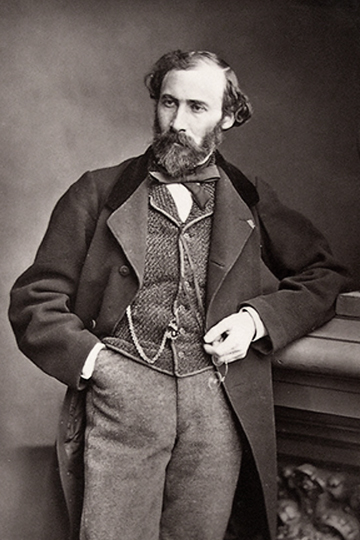
Octave Feuillet
Feuillet was born at Saint-Lô, Manche (Normandy). His father Jacques Feuillet was a prominent lawyer and Secretary-General of La Manche, but also a hypersensitive invalid. His mother died when he was an infant. Feuillet inherited some of his father's nervous excitability, though not to the same degree. He was sent to Lycée Louis-le Grand, in Paris, where he achieved high distinction, and was destined for the diplomatic service.In 1840 he told his father that he planned to be a writer instead, and the elder Feuillet disowned his son. Octave Feuillet returned to Paris and lived as best he could by becoming a journalist. In company with Paul Bocage he wrote the plays Echec et mat, Palma ou la nuit de Vendredi saint, and La Vieillesse de Richelieu. His father forgave him three years later and granted him an allowance. Feuillet enjoyed a comfortable existence in Paris and published his first novels.
-
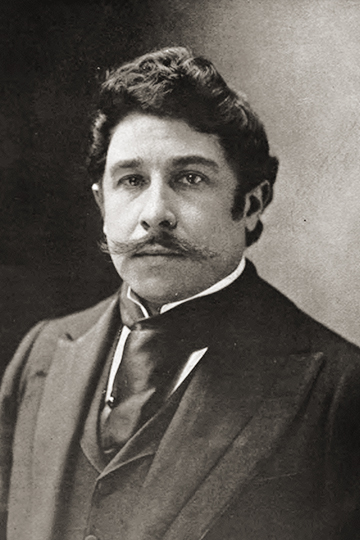
Paul Adam
Paul Auguste Marie Adam, born December 7, 1862 in Paris where he died January 2, 1920, is a French writer and art critic. Coming from a family of industrialists and soldiers from Artois, son of a Postmaster General under the Second Empire, Paul Adam studied at the Lycée Henri-IV in Paris before embarking on a literary career. in 1884, he collaborated with La Revue Indépendant before publishing in Belgium his first novel, Chair molle (1885), which was accused of immorality, caused scandal and earned the young author a suspended prison sentence of fifteen days and a Heavy fine. Abandoning naturalism, Paul Adam turned to symbolism. He contributes to various magazines linked to this movement, animates Le Symboliste and La Vogue and founded Le Carcan with Paul Ajalbert. In 1886, he collaborated with Jean Moréas in Le Thé chez Miranda and Les Demoiselles Goubert and published an intimate novel, Soi. Its notoriety is established with the novel Being (1888).
-
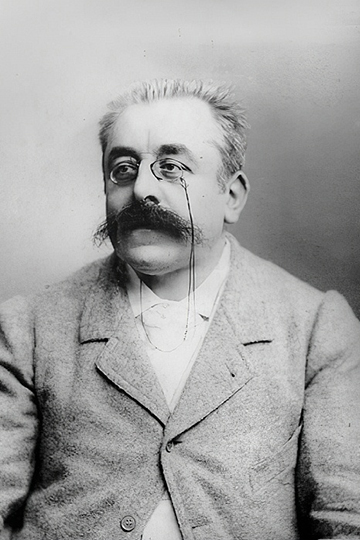
Paul Alexis
Antoine Joseph Paul Alexis (16 June 1847 – 28 July 1901) was a French novelist, dramatist, and journalist. He is best remembered today as the friend and biographer of Émile Zola. Alexis was born at Aix-en-Provence. He attended the Collège Bourbon where he first learned of Zola, who was himself a graduate. At the direction of his parents he studied law at the University of Aix, but he longed for the life of a writer, and finally left Aix-en-Provence for Paris. He arrived in the capital in 1869 where he quickly became acquainted with Zola and his family. He contributed articles to a number of newspapers including L'Avenir national, La Cloche, Le Corsaire, Le Cri du peuple (under the pseudonym Trublot), Gil Blas,, Le Journal, La Réforme, Le Recueil, and Le Voltaire. He wrote novels in the naturalist style as well as several plays, some of which were written in collaboration with Oscar Méténier.In 1875, he was briefly incarcerated on the mistaken suspicion of being a Communard who as such would have faced the prospect of life in prison, but Zola was able to use his influence to have him released.Along with J.-K. Huysmans, Henri Céard, Guy de Maupassant, Léon Hennique, and Zola, he formed part of the groupe des Médan which was responsible for publishing Les Soirées de Médan in 1880, a collection of six naturalist stories dealing with the Franco-Prussian War. Alexis' contribution was the story Après la bataille ("After the Battle").
-
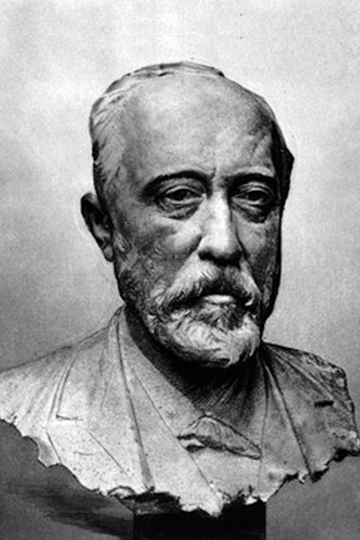
Paul Arene
Paul-Auguste Arène (26 June 1843, Sisteron, Alpes-de-Haute-Provence – 17 December 1896, Antibes) was a Provençal poet and French writer. The son of Adolphe, a clockmaker, and Reine, a cap presser, he studied in Marseille, then in Vannes. A short play which enjoyed some success at the Odéon, Pierrot héritier, led him to quit, in 1865, the University, and journalism. He was 23. He started to contribute to Figaro littéraire and composed his first Provençal verses, which were published in the Almanach avignonnais by Joseph Roumanille.The subject of all of his Provençal pieces are the area, and particularly the countryside, around Sisteron : Fontfrediero, Lis Estello negro, Raubatori.In French, Paul Arène published Parnassiculet, in which he talked about his life, in the style of Parnassianism. Like his friend Octave Mirbeau in 1884, Paul Arène collaborated actively with Alphonse Daudet in the publishing of his Provençal chronicles, published as L'Événement and which were republished under the title Lettres de mon moulin.
-
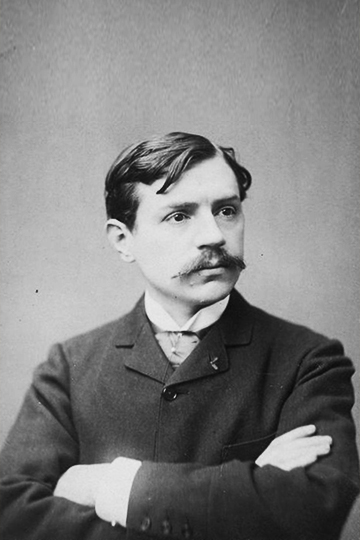
Paul Bourget
Paul Bourget ( 2 September 1852 – 25 December 1935) was a French novelist and critic. He was nominated for the Nobel Prize in Literature five times. Paul Bourget was born in Amiens in the Somme département of Picardy, France. His father, a professor of mathematics, was later appointed to a post in the college at Clermont-Ferrand, where Bourget received his early education. He afterwards studied at the Lycée Louis-le-Grand and at the École des Hautes Études. Bourget died on Christmas Day 1935, aged 83, in Paris.
-
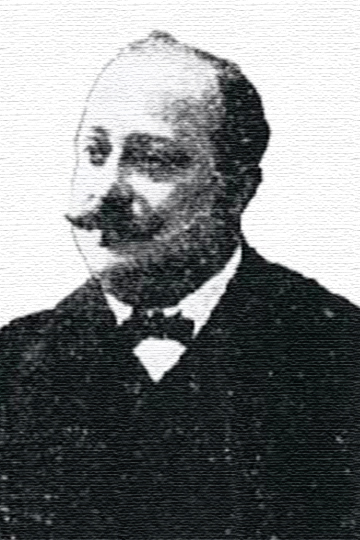
Paul d’Ivoi
Paul d'Ivoi, pen name of Paul Charles Philippe Éric Deleutre, is a French novelist born on October 25, 1856 in Paris and died on September 6, 1915 in Paris. Paul Deleutre is not the only one to use the pseudonym Paul d'Ivoi. His father, Charles, also signed his journalistic columns Paul d'Ivoi. He began as a journalist at Paris-Journal and collaborated with the Journal des voyages under the pseudonym Paul d'Ivoi. Between 1894 and 1916, he published the 21 volumes of the series Voyages eccentriques which exploited the vein of Jules Verne's Voyages extraordinaires. In 1894, the first volume of the series, Les Cinq Sous de Lavarède, written in collaboration with Henri Chabrillat, earned him fame.
-

Paul Deltuf
Paul Deltuf, born on March 7, 1825 in Paris (former 11th), died on August 14, 1870 in Clermont (Oise), is a French poet and writer. He became known through a volume of poetry, Idylles antiques, in 1851, then wrote a large number of novels and short stories around a main theme: women. Towards the end of his life, he became interested in history. His book on Machiavelli, trying to rehabilitate the man and the work and even offering a translation, was condemned by the congregation of the Index and ended his days in an asylum for the insane.
-
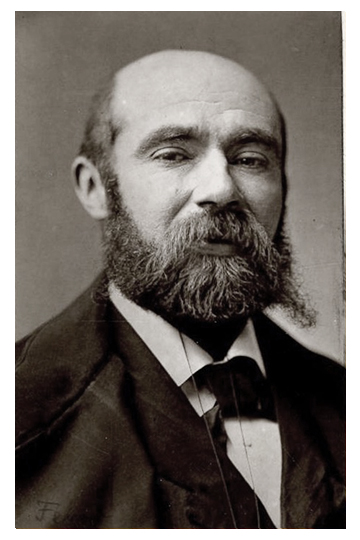
Paul Féval
Paul Henri Corentin Féval, père (29 September 1816 - 8 March 1887) was a French novelist and dramatist.He was the author of popular swashbuckler novels such as Le Loup blanc (1843) and the perennial best-seller Le Bossu (1857). He also penned the seminal vampire fiction novels Le Chevalier Ténèbre (1860), La Vampire (1865) and La Ville Vampire (1874) and wrote several celebrated novels about his native Brittany and Mont Saint-Michel such as La Fée des Grèves (1850).Féval's greatest claim to fame, however, is as one of the fathers of modern crime fiction. Because of its themes and characters, his novel Jean Diable (1862) can claim to be the world's first modern novel of detective fiction. His masterpiece was Les Habits Noirs (1863–1875), a criminal saga comprising eleven novels.After losing his fortune in a financial scandal, Féval became a born-again Christian, stopped writing crime thrillers, and began to write religious novels, leaving the tale of the Habits Noirs uncompleted.
-
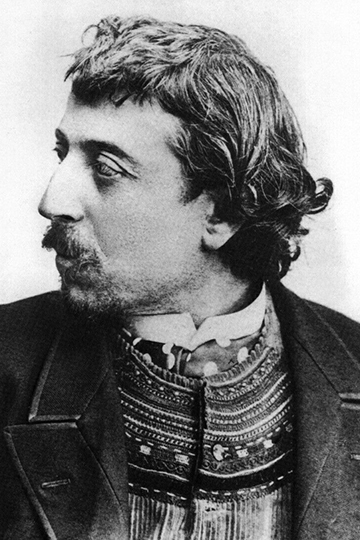
Paul Gauguin
Eugène Henri Paul Gauguin (7 June 1848 – 8 May 1903) was a French Post-Impressionist artist. Unappreciated until after his death, Gauguin is now recognized for his experimental use of color and Synthetist style that were distinct from Impressionism. Toward the end of his life, he spent ten years in French Polynesia. The paintings from this time depict people or landscapes from that region.His work was influential on the French avant-garde and many modern artists, such as Pablo Picasso and Henri Matisse. Gauguin's art became popular after his death, partially from the efforts of dealer Ambroise Vollard, who organized exhibitions of his work late in his career and assisted in organizing two important posthumous exhibitions in Paris.Gauguin was an important figure in the Symbolist movement as a painter, sculptor, printmaker, ceramist, and writer. His expression of the inherent meaning of the subjects in his paintings, under the influence of the cloisonnist style, paved the way for Primitivism and the return to the pastoral. He was also an influential proponent of wood engraving and woodcuts as art forms.